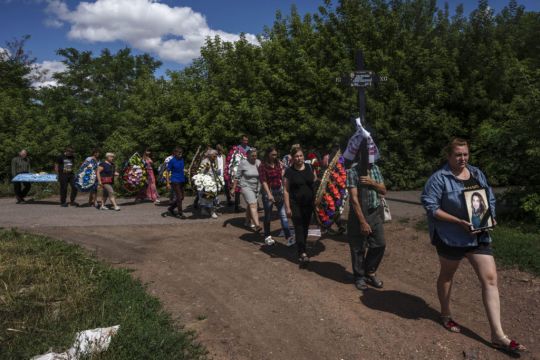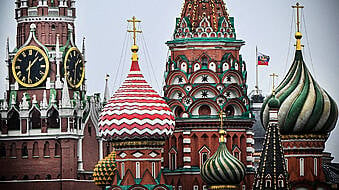Tens of thousands of people who were evacuated from Ukraine’s eastern Donetsk region are returning to homes close to the front line because they cannot afford to live in safer places.
One woman was killed by a missile outside her home in Pokrovsk just two days after returning.
Ukrainian authorities have lamented the fact that some civilians remain in the path of the war against Russia, but the region’s residents are also frustrated.
Some described feeling unwelcome as Russian speakers among Ukrainian speakers in some parts of the country.
But more often, the problem is the lack of money to start a new life.

The mayor’s office in one small Donetsk city estimates that 70% of evacuated residents have come back.
Anna Protsenko was killed in a missile strike two days after returning home. The 35-year-old had done what authorities wanted, evacuating from eastern Ukraine’s Donetsk region as Russian forces moved closer. But starting a new life elsewhere had been uncomfortable and expensive.
Like Ms Protsenko, tens of thousands of people have returned to rural or industrial communities close to the region’s front line at considerable risk because they cannot afford to live in safer places.
Ms Protsenko had tried it for two months, then came home to take a job in the small city of Pokrovsk.
On Monday, friends and family caressed her face and wept before her casket was hammered shut beside her grave.
“We cannot win. They don’t hire us elsewhere and you still have to pay rent,” said a friend and neighbour, Anastasia Rusanova. There’s nowhere to go, she said, but here in Donetsk, “everything is ours”.

In the larger city of Kramatorsk, an hour’s drive closer to the front line, officials said the population had dropped to about 50,000 from the normal 220,000 in the weeks following Russia’s invasion, but has since risen to 68,000.
In Kramatorsk, some people queueing for boxes of humanitarian aid said they were too poor to evacuate at all.
Donetsk and its economy have been dragged down by conflict since 2014, when Russian-backed separatists began fighting Ukraine’s government.

Homesickness and uncertainty also drive returns to Donetsk. A daily evacuation train leaves Pokrovsk for relatively safer western Ukraine, but another train also arrives daily with people who have decided to come home. While the evacuation train is free, the return one is not.
Oksana Tserkovnyi took the train home with her 10-year-old daughter two days after the deadly attack on July 15 in Dnipro, where they had stayed for more than two months. While the attack was the spark to return, Ms Tserkovnyi had found it difficult to find work. Now she plans to return to her previous job in a coal mine.
Costs in Dnipro, already full of evacuees, were another concern. “We stayed with relatives, but if we needed to rent it would have been a lot more,” Ms Tserkovnyi said. “It starts at 6,000 hryvnia (£166) a month for a studio, and you won’t be able to find it.”
Taxi drivers who wait in Pokrovsk for the arriving train said many people give up on trying to resettle elsewhere.
“Half my work for sure is taking these people,” said one driver, Vitalii Anikieiev. “Because the money is gone.”







